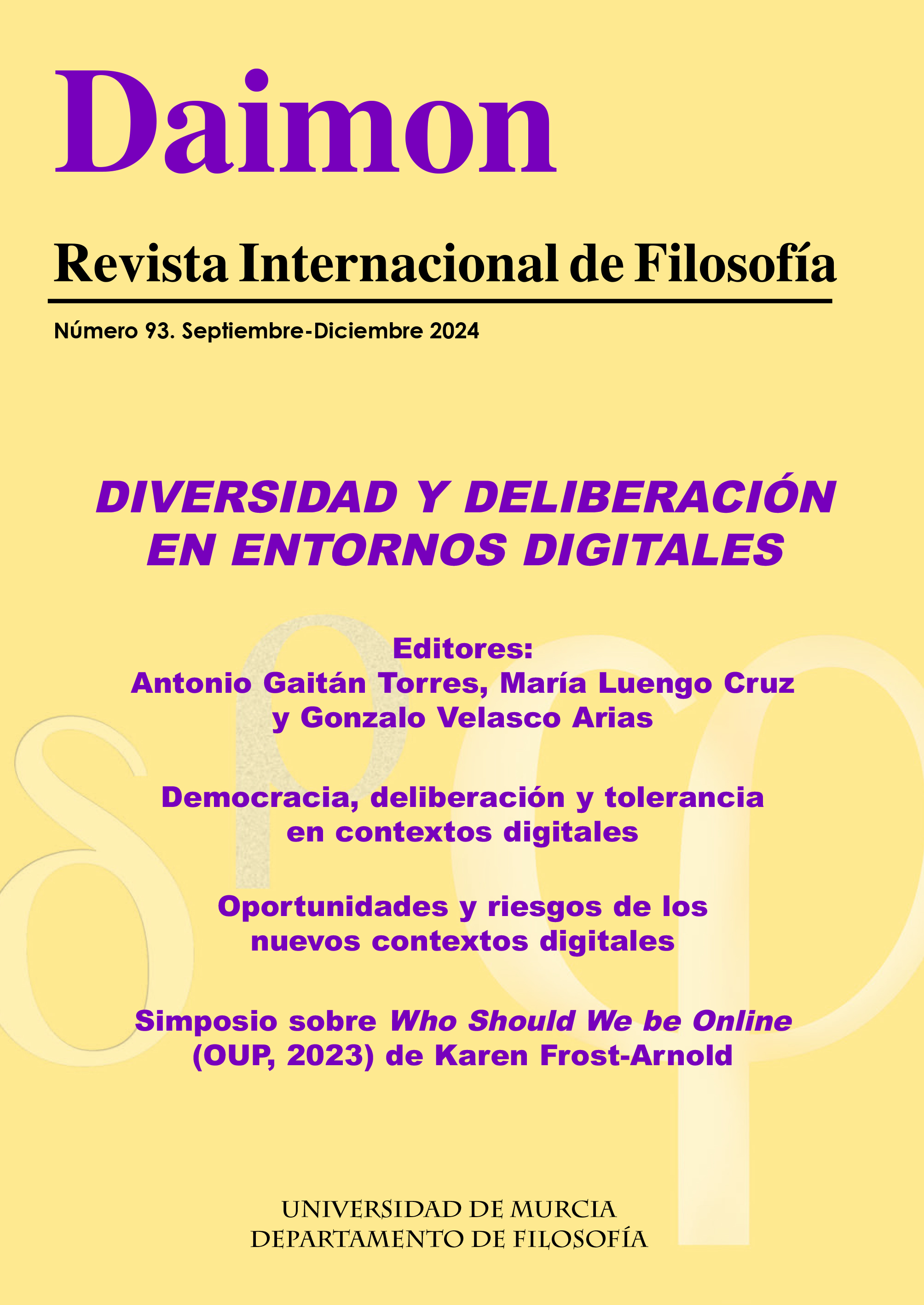Absolute Freedom of Speech and Social Media: Deconstructing the Argument of Individual Self-Realization
Resumo
The paper challenges the absolute conception of freedom of speech as an unconditional means for individual self-realization. Firstly, it discusses the positions of Scanlon and Redish, revealing the inherent vulnerabilities in their arguments. Subsequently, it argues against the view of unlimited freedom of speech as fundamental to self-realization. Finally, even if one were to accept the premise of self-realization as an axiom, social media would not qualify as suitable arenas for its actualization, given their inability to replicate the fundamental characteristics of a public sphere that favors open, plural, and rational debate. Keywords: self-realization, autonomy, Scanlon, social media, public sphere, Habermas.
Downloads
-
Resumo1004
-
PDF 643
-
HTML 160
Referências
Baker, C. E. (1989), Human Liberty and Freedom of Speech. Oxford: Oxford University Press.
Baker, E. (1982), “Realizing Self-Realization: Corporate Political Expenditures and Redish's ‘The Value of Free Speech’”, University of Pennsylvania Law Review, 130 (3), pp. 646-677.
Barendt, E. (2007), Freedom of Speech. 2nd. Oxford: Oxford University Press.
Bresolin, K. (2023a), Liberdade de expressão, esfera pública, plataformas digitais e mídias sociais, Ethic@ - An international Journal for Moral Philosophy, 22 (2), pp.761-790.
Bresolin, K. (2023b), Da busca da verdade ao discurso de ódio: Desconstruindo o mito da absolutidade da liberdade de expressão na era digital. Revista Sapere Aude, 14(28), pp.465-491.
Espinoza, D. S. E. (2017), “A doutrina do mínimo existencial”, Interfaces Científicas – Humanas e Sociais, 6 (1), pp.101-112.
Gomes, I. (2023), “Pobreza cai para 31,6% da população em 2022, após alcançar 36,7% em 2021”, Agência IBGE Notícias, Recuperado de: https://abrir.link/CnEfQ, Accessed on: 30.03.2024.
Habermas, J. (2001). Strukturwandel der Öffentlichkeit: Untersuchungen zu einer Kategorie der bürgerlichen Gesellschaft. Frankfurt am Main: Suhrkamp.
Habermas, J. (2022), “Überlegungen und Hypothesen zu einem erneuten Strukturwandel der politischen Öffentlichkeit“ en Habermas, J., Ein neuer Strukturwandel der Öffentlichkeit und die deliberative Politik. Berlin: Suhrkamp, p.9-68.
Loader, B. D., y Mercea, D. (2011), “Networking Democracy? Social Media Innovations and Participatory Politics.” Information, Communication and Society, 14 (6), pp.757-769.
Nagel, T. (1995), “Personal Rights and Public Space”. Philosophy Public Affairs, 24 (2), pp.83-107.
Pariser, E. (2011), The Filter Bubble: What the Internet Is Hiding from You. New York: Penguin Press.
Pinotti, F. (2023), “Google retira mensagem contra a PL das Fake News da página inicial”, CNN Brasil, Recuperado de: https://www.cnnbrasil.com.br/politica/google-retira-mensagem-contra-pl-das-fake-news-da-pagina-inicial/ . Accessed on: 02.04.2024.
Redish, M. “The Value of Free Speech”, University of Pennsylvania Law Review, 130 (3), pp.591-645.
Scanlon, T. (1972). “A Theory of Freedom of Expression”, Philosophy & Public Affairs”, 1 (2), pp.204-226.
Scanlon, T. (2003), “Freedom of expression and categories of expression” en Scanlon, T., The Difficulty of Tolerance. Essay in Political Philosophy. Cambridge: Cambridge University Press, pp.84-112.
Shewale, R. (2024), “Social Media Users 2024 (Global Data & Statistics)”, Demandsage. Recuperado de: https://www.demandsage.com/social-media-users/, Accessed on: 02.04.2024.
Shirky, C. (2011), “The Political Power of Social Media Technology, the Public Sphere, and Political Change”, Foreign Affairs, 90 (1), pp.1-9. Recuperado de: https://faculty.cc.gatech.edu/~beki/cs4001/Shirky.pdf.
Sunstein, C. R. (2006), Infotopia: How Many Minds Produce Knowledge: New York: Oxford University Press.
Sunstein, C. R. (2017), #Republic: divided democracy in the age of social media. Princeton: Princeton University Press.
Direitos de Autor (c) 2024 Daimon

Este trabalho encontra-se publicado com aLicença Internacional Creative Commons Atribuição-NãoComercial-SemDerivações 3.0.
Las obras que se publican en esta revista están sujetas a los siguientes términos:
1. El Servicio de Publicaciones de la Universidad de Murcia (la editorial) conserva los derechos patrimoniales (copyright) de las obras publicadas, y favorece y permite la reutilización de las mismas bajo la licencia de uso indicada en el punto 2.
2. Las obras se publican en la edición electrónica de la revista bajo una licencia Creative Commons Reconocimiento-NoComercial-SinObraDerivada 3.0 España (texto legal). Se pueden copiar, usar, difundir, transmitir y exponer públicamente, siempre que: i) se cite la autoría y la fuente original de su publicación (revista, editorial y URL de la obra); ii) no se usen para fines comerciales; iii) si remezcla, transforma o crea a partir del material, no podrá distribuir el material modificado.
3. Condiciones de auto-archivo. Se permite y se anima a los autores a difundir electrónicamente las versiones pre-print (versión antes de ser evaluada) y/o post-print (versión evaluada y aceptada para su publicación) de sus obras antes de su publicación, ya que favorece su circulación y difusión más temprana y con ello un posible aumento en su citación y alcance entre la comunidad académica. Color RoMEO: verde.











